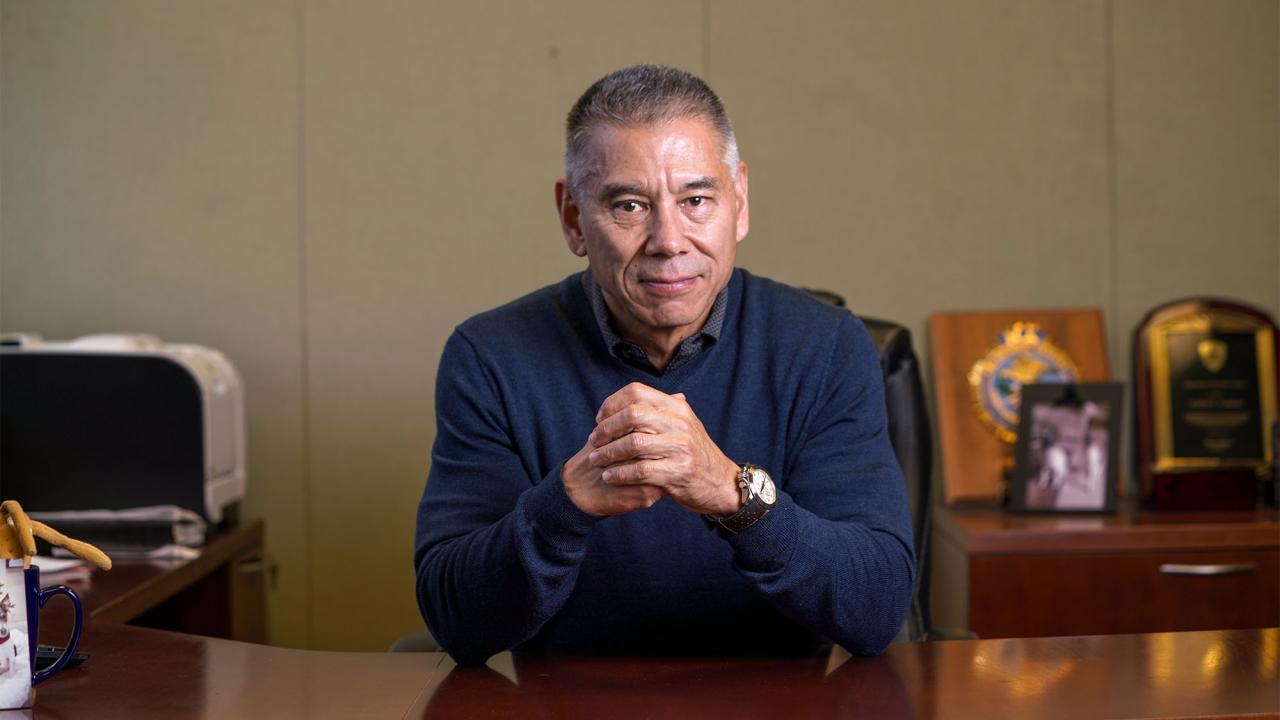A new state law championed by Police Chief Joe Farrow will allow anyone who is legally authorized to work in the United States to become a peace officer in California, regardless of citizenship status, starting Jan. 1.
Previously, police officers had to be either U.S. citizens or permanent residents in the process of applying for citizenship.
“People who are in this country with a federal right to work — regardless of how they got here — they can do any job. They can be attorneys, firefighters, join the military, but they can’t be police officers in California,” Farrow said. “Why hold people back? This was the question that deserved some debate.”
Farrow became aware of the issue after joining UC Davis in 2018. As part of efforts to increase diversity, the UC Davis police department recruits new officers from graduating seniors in its cadet academy.
“I noticed kids who were really distinguishing themselves in our academy, but they weren’t eligible to be peace officers,” Farrow said. With support from UC President Michael Drake and Chancellor Gary S. May, Farrow began working toward a bill.
Applicants ready
Guided by state Sen. Nancy Skinner (D-Berkeley), Senate Bill 960 easily passed every hearing and vote, and was signed by Gov. Gavin Newsom Sept. 29.
“All it says is that to become a peace officer in California, you need to have a legal right to work here,” Farrow said. “All the background checks, all the checks and balances remain the same.”
Farrow said he already has applicants in line for jobs as UC Davis police officers and hopes to make at least one hire in the new year. It’s part of the department’s goal of becoming more diverse and reflective of the community.
“We need to bring in people from marginalized groups and allow them to fulfil their dreams,” Farrow said. “This bill reminds us that universities are a place where people learn and effect change. Passage of SB 960 is a great example of people identifying an issue, having a public debate resulting in a change in the law that positively effects members of our community.”
Media Resources
Media Contact
- Andy Fell, News and Media Relations, 530-304-8888, ahfell@ucdavis.edu
